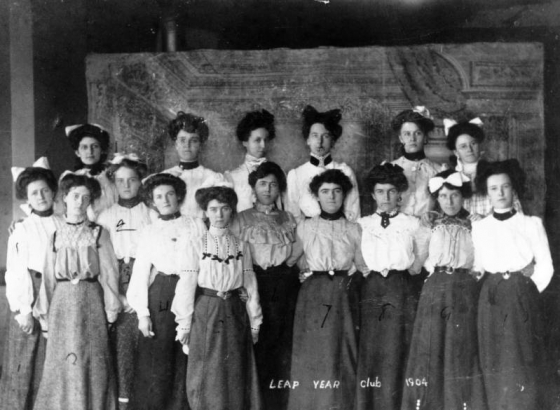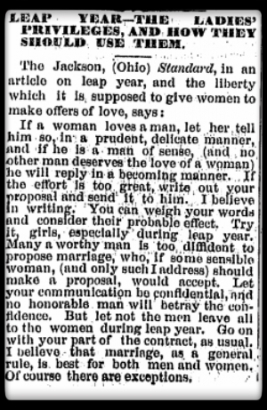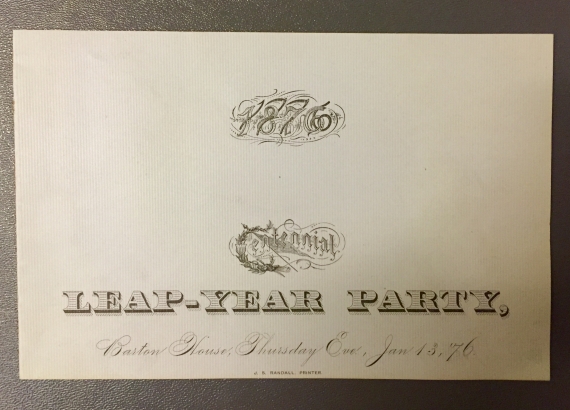For those following the Gregorian calendar, a leap year is here!
Quick tip: if a year is divisible by four, it is considered a leap year (except for years that are both divisible by 100 and not divisible by 400)
Today, a leap year simply means an extra day in the month of February to keep our calendar in alignment with the Earth's revolutions around the sun. Years ago, however, it meant much more—particularly to women.
While leap years have been associated with a variety of myths (beans grew the "wrong" way) and superstitions (leap year marriages were doomed in Greek culture), the predominant leap year tradition in Western culture was a brief role reversal for women in the arena of courtship.
This tradition is thought to have originated in Ireland during the 5th century, when St. Bridget reportedly implored St. Patrick to grant women the opportunity to propose to men during a leap year.
Leap year social activities gave women "the opportunity to conceptualize their rights to certain feminine freedoms, with opportunities they did not have during the rest of the year." —Andrea G. Radke-Moss, Bright Epoch: Women & Coeducation in the American West
In Colorado during the 19th and 20th centuries, leap years became associated with social events that allowed for women to become pursuers in romantic relationships with men—as evidenced by the many articles devoted to the subject in Colorado newspapers.
Articles, such as the one below, offered females advice on wielding their leap year powers. They suggested that women communicate their love for a man in a "prudent, delicate manner" and recommended written proposals, as they allowed one to weigh their words and "consider their probable effect."
Curious about the history of Denver and the American West? Visit DPL's Western History and Genealogy Department today!




Comments
I always look for men, like
I always look for men, like #7, have a good sized bump at the base of their head!
Indeed--it is sound advice!
Indeed--it is sound advice!
Katie, what were the
Katie, what were the exceptions in the "Co. Daily Tribune" article?
We're not sure, W R. That was
We're not sure, W R. That was the end of the article.
Add new comment